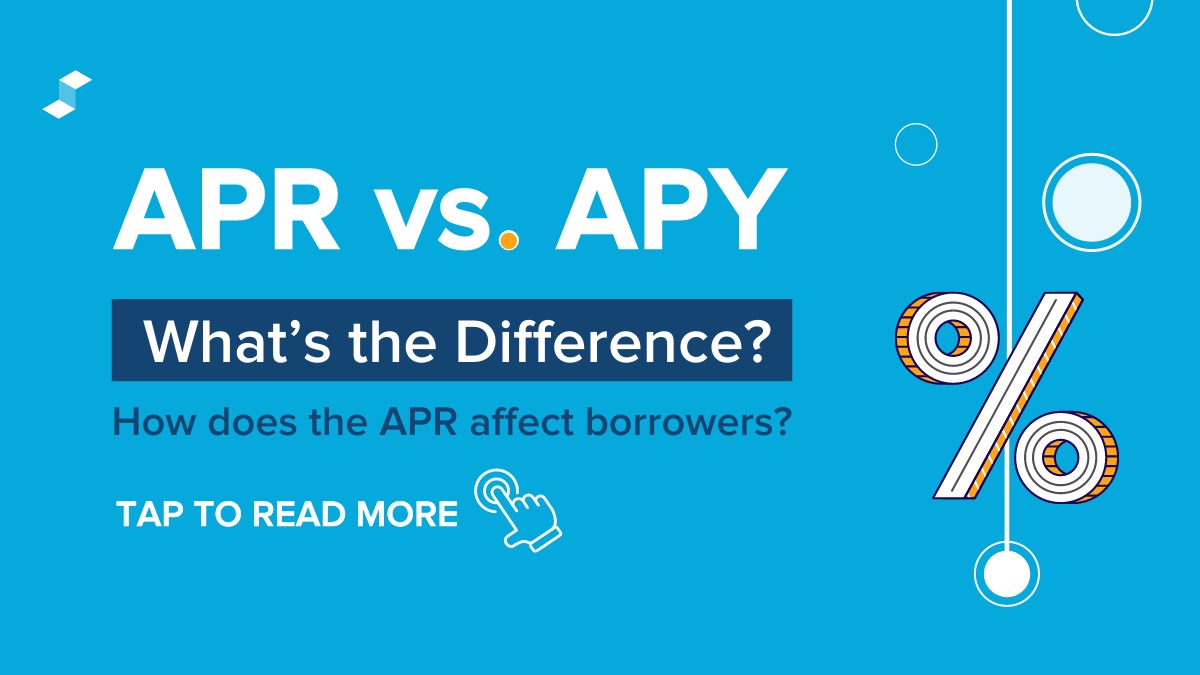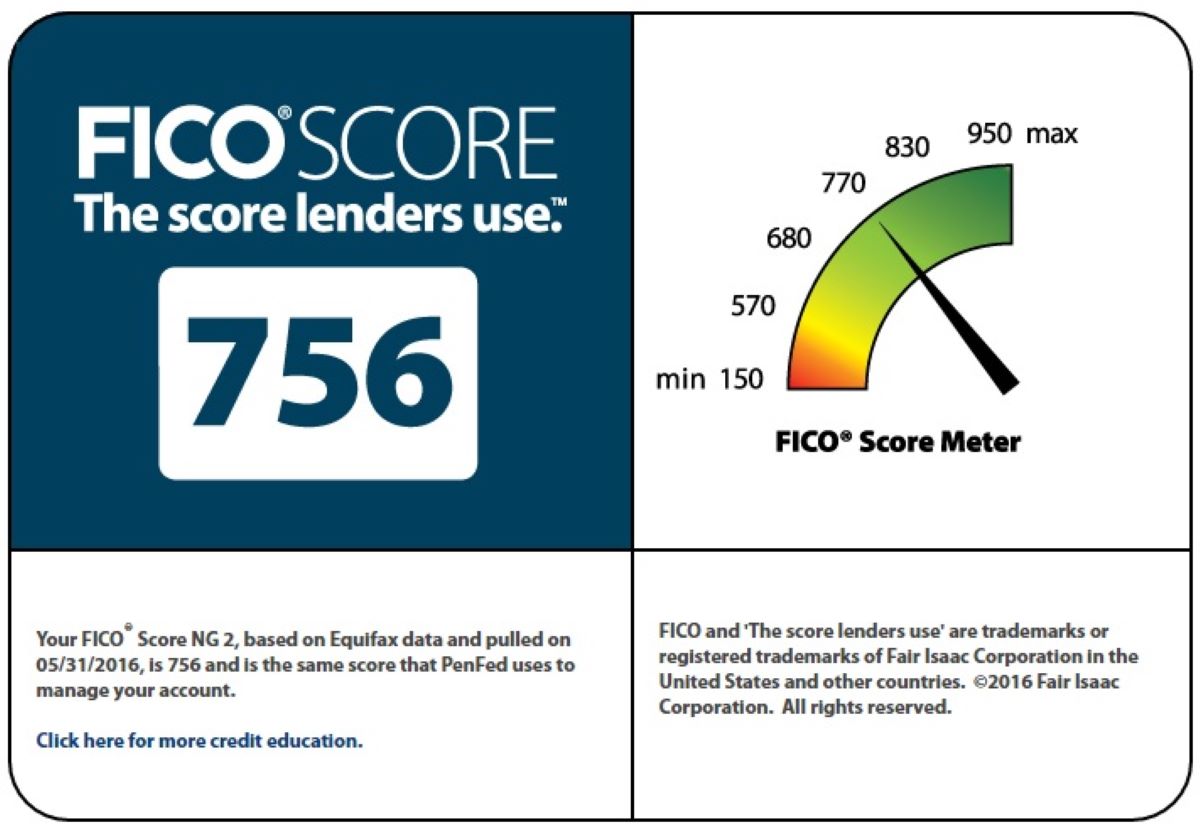Home>Finance>What Is The Difference Between Money Management And Credit Management?


Finance
What Is The Difference Between Money Management And Credit Management?
Published: February 28, 2024
Learn the key distinctions between money management and credit management in the realm of finance. Understand how to effectively handle your finances and credit.
(Many of the links in this article redirect to a specific reviewed product. Your purchase of these products through affiliate links helps to generate commission for LiveWell, at no extra cost. Learn more)
Table of Contents
Introduction
Understanding the Importance of Financial Management
Effective financial management is essential for individuals and businesses alike. It encompasses various aspects, including money management and credit management. While these terms are often used interchangeably, they represent distinct concepts that play crucial roles in achieving financial stability and success.
In this article, we will delve into the differences between money management and credit management, elucidating their unique characteristics and the impact they have on financial well-being. By gaining a deeper understanding of these fundamental concepts, readers can enhance their financial literacy and make informed decisions regarding their personal and professional finances.
Understanding the nuances of money management and credit management is pivotal for anyone striving to attain fiscal prudence and security. Through this exploration, we aim to shed light on the significance of these principles and provide actionable insights for effective implementation. Whether you are an individual seeking to bolster your financial acumen or a business owner navigating the complexities of fiscal responsibility, the distinction between money management and credit management holds immense relevance in your journey toward financial empowerment.
Understanding Money Management
Money management refers to the strategic handling of financial resources to achieve specific goals. It encompasses a spectrum of activities, including budgeting, saving, investing, and expenditure tracking. At its core, effective money management revolves around optimizing income, minimizing expenses, and cultivating a sustainable financial trajectory.
One of the fundamental aspects of money management is budgeting. By creating a comprehensive budget that delineates income sources and allocates funds for various expenses, individuals and businesses can gain clarity and control over their financial inflows and outflows. Moreover, prudent money management involves cultivating healthy saving habits. Setting aside a portion of income for contingencies, future investments, and long-term financial objectives is pivotal for fostering financial resilience and preparedness.
Investment plays a pivotal role in money management, enabling individuals and businesses to grow their financial portfolio and generate passive income. Whether through stocks, real estate, or other investment vehicles, strategic investment decisions are integral to effective money management. Furthermore, tracking expenses and analyzing spending patterns are crucial components of money management, as they provide insights into financial habits and facilitate informed decision-making.
By embracing the principles of money management, individuals and businesses can harness financial resources to achieve sustainable growth, mitigate risks, and seize opportunities. This proactive approach to financial stewardship lays the foundation for long-term stability and prosperity, empowering stakeholders to navigate economic fluctuations and pursue their aspirations with confidence.
Understanding Credit Management
Credit management encompasses the practices and strategies employed to responsibly utilize and maintain access to credit. It involves the prudent management of borrowing, repayment, and credit utilization to uphold a favorable credit standing. Individuals and businesses leverage credit for various purposes, such as making purchases, funding ventures, and managing cash flow, making adept credit management a vital component of financial health.
One of the key elements of credit management is maintaining a healthy credit score. This numerical representation of creditworthiness influences an individual’s or entity’s ability to secure favorable loan terms, access credit lines, and engage in financial transactions. Diligent credit management involves making timely payments, managing debt levels, and avoiding actions that can adversely impact credit scores, thus safeguarding financial credibility.
Strategic credit utilization is another facet of credit management, involving the judicious use of available credit lines to meet financial needs without overextending. By prudently leveraging credit facilities and maintaining optimal credit utilization ratios, individuals and businesses can preserve their creditworthiness and access additional financial resources when necessary. Additionally, understanding the terms and conditions of credit agreements and loan instruments is crucial for effective credit management, enabling borrowers to make informed decisions and uphold their financial commitments.
Furthermore, credit management encompasses debt repayment strategies and proactive measures to address any discrepancies or inaccuracies in credit reports. By devising structured repayment plans, negotiating favorable terms with creditors, and rectifying credit report errors, individuals and businesses can proactively manage their debt obligations and fortify their financial standing.
Embracing sound credit management practices empowers individuals and businesses to navigate the financial landscape with confidence, leveraging credit as a strategic tool for growth and stability. By upholding a positive credit profile and exercising prudence in credit-related decisions, stakeholders can unlock opportunities, secure favorable financial arrangements, and cultivate enduring financial resilience.
Key Differences Between Money Management and Credit Management
While both money management and credit management are integral components of financial stewardship, they diverge in their focus and application. Money management primarily revolves around the strategic allocation and utilization of financial resources, encompassing budgeting, saving, investing, and expenditure tracking. It centers on optimizing income, minimizing expenses, and fostering sustainable financial growth.
On the other hand, credit management pertains to the responsible handling of borrowing, repayment, and credit utilization. It involves maintaining a favorable credit standing, managing debt, and leveraging credit facilities judiciously. The primary goal of credit management is to uphold creditworthiness, navigate borrowing arrangements, and mitigate risks associated with credit utilization.
One of the fundamental distinctions between money management and credit management lies in their respective scopes. Money management encompasses a broad spectrum of financial activities, including income management, expense control, investment, and long-term financial planning. It is geared towards optimizing overall financial well-being and fostering sustainable wealth accumulation.
Conversely, credit management is more narrowly focused on the prudent use of credit facilities, debt management, and credit score maintenance. It revolves around preserving favorable credit profiles, navigating borrowing arrangements, and mitigating the impact of credit-related decisions on overall financial stability.
Another key difference lies in the temporal aspects of these practices. Money management is oriented towards long-term financial sustainability and wealth accumulation, encompassing strategies and decisions that shape financial trajectories over extended periods. In contrast, credit management often entails more immediate considerations, such as managing current debt obligations, addressing credit discrepancies, and optimizing credit scores for imminent financial transactions.
While money management and credit management are distinct in their focus and application, they are interconnected elements of comprehensive financial stewardship. Effective money management provides the foundation for prudent financial decision-making and resource optimization, while adept credit management safeguards financial credibility and facilitates strategic credit utilization.
Understanding the nuanced differences between these two disciplines empowers individuals and businesses to holistically manage their financial affairs, cultivate resilience, and pursue their long-term financial aspirations with clarity and confidence.
Importance of Money Management and Credit Management
Both money management and credit management play pivotal roles in shaping financial well-being and fostering resilience in the face of economic challenges. Understanding the distinct importance of these disciplines is essential for individuals and businesses seeking to navigate the complex terrain of financial stewardship.
Effective money management is paramount for achieving long-term financial stability and realizing financial goals. By diligently managing income, expenses, and investments, individuals and businesses can cultivate sustainable wealth accumulation, prepare for contingencies, and pursue their aspirations with confidence. Furthermore, prudent money management instills financial discipline, enabling stakeholders to make informed decisions, prioritize financial objectives, and optimize resource allocation.
Concurrently, credit management holds immense significance in safeguarding financial credibility and accessing essential financial resources. Adept credit management is vital for securing favorable loan terms, leveraging credit facilities for growth opportunities, and maintaining a robust financial standing. By upholding a positive credit profile and managing debt responsibly, individuals and businesses can unlock access to capital, secure favorable financial arrangements, and navigate financial transactions with assurance.
Moreover, the symbiotic relationship between money management and credit management underscores their collective impact on overall financial health. Prudent money management provides the foundation for sound financial decision-making, enabling stakeholders to optimize resources, plan for the future, and weather economic uncertainties. In tandem, effective credit management safeguards financial credibility, facilitates strategic credit utilization, and empowers individuals and businesses to seize opportunities and mitigate risks.
By recognizing the importance of both money management and credit management, stakeholders can proactively cultivate financial resilience, capitalize on growth opportunities, and navigate the dynamic landscape of personal and business finance with acumen and foresight. Embracing these disciplines as integral components of comprehensive financial stewardship empowers individuals and businesses to forge a path toward enduring financial well-being and prosperity.
Tips for Effective Money and Credit Management
Mastering the art of effective money and credit management is instrumental in fostering financial stability and unlocking opportunities for growth. By implementing prudent strategies and cultivating disciplined financial habits, individuals and businesses can navigate the complexities of financial stewardship with confidence and foresight.
Money Management Tips:
- Create a Comprehensive Budget: Develop a detailed budget that encompasses all sources of income and allocates funds for essential expenses, savings, and investments. Regularly review and adjust the budget to align with financial goals and changing circumstances.
- Cultivate Healthy Saving Habits: Set aside a portion of income for emergency funds, long-term savings, and investment opportunities. Automate savings where possible to ensure consistent contributions.
- Invest Wisely: Conduct thorough research and seek professional guidance to make informed investment decisions aligned with long-term financial objectives.
- Monitor and Track Expenses: Utilize financial tracking tools and apps to monitor spending patterns, identify areas for potential savings, and maintain financial discipline.
Credit Management Tips:
- Maintain a Healthy Credit Score: Make timely payments, manage debt levels responsibly, and regularly monitor credit reports to address any discrepancies or issues that may impact creditworthiness.
- Strategically Utilize Credit Facilities: Avoid maxing out credit lines and aim to maintain a favorable credit utilization ratio. Use credit prudently for essential expenses and strategic financial initiatives.
- Understand Credit Agreements: Thoroughly review and comprehend the terms and conditions of credit agreements and loans to make informed decisions and avoid potential pitfalls.
- Proactive Debt Management: Develop structured repayment plans, communicate with creditors to negotiate favorable terms when facing financial challenges, and seek professional guidance when necessary to address debt obligations effectively.
By incorporating these tips into their financial practices, individuals and businesses can proactively enhance their money and credit management acumen, fortify their financial standing, and pursue their long-term financial aspirations with clarity and resilience.
Conclusion
Effective financial management is a multifaceted endeavor that encompasses various disciplines, including money management and credit management. These fundamental components are indispensable for individuals and businesses seeking to achieve financial stability, resilience, and growth. By understanding the nuances of money management and credit management, stakeholders can navigate the complexities of financial stewardship with acumen and foresight, laying the groundwork for enduring prosperity.
Money management empowers individuals and businesses to optimize resources, cultivate healthy financial habits, and pursue sustainable wealth accumulation. Through prudent budgeting, strategic saving, astute investment decisions, and disciplined expense tracking, stakeholders can chart a course toward long-term financial well-being and preparedness.
Concurrently, credit management plays a pivotal role in safeguarding financial credibility, accessing essential financial resources, and navigating borrowing arrangements with confidence. By maintaining a positive credit profile, managing debt responsibly, and leveraging credit facilities judiciously, individuals and businesses can unlock opportunities for growth and mitigate risks associated with credit utilization.
The symbiotic relationship between money management and credit management underscores their collective impact on overall financial health. Prudent money management provides the foundation for sound financial decision-making, while effective credit management safeguards financial credibility, facilitating strategic credit utilization and resilient financial standing.
By embracing the tips for effective money and credit management, stakeholders can proactively cultivate financial resilience, capitalize on growth opportunities, and navigate the dynamic landscape of personal and business finance with acumen and foresight. Implementing comprehensive budgeting, cultivating healthy saving habits, making informed investment decisions, and maintaining a positive credit profile are instrumental in shaping a robust financial trajectory.
In conclusion, by recognizing the importance of money management and credit management as integral components of comprehensive financial stewardship, individuals and businesses can forge a path toward enduring financial well-being and prosperity. Through disciplined financial practices, informed decision-making, and a proactive approach to resource optimization, stakeholders can embark on a journey toward financial empowerment and resilience, equipped with the knowledge and strategies to navigate the dynamic terrain of personal and business finance with clarity and confidence.














